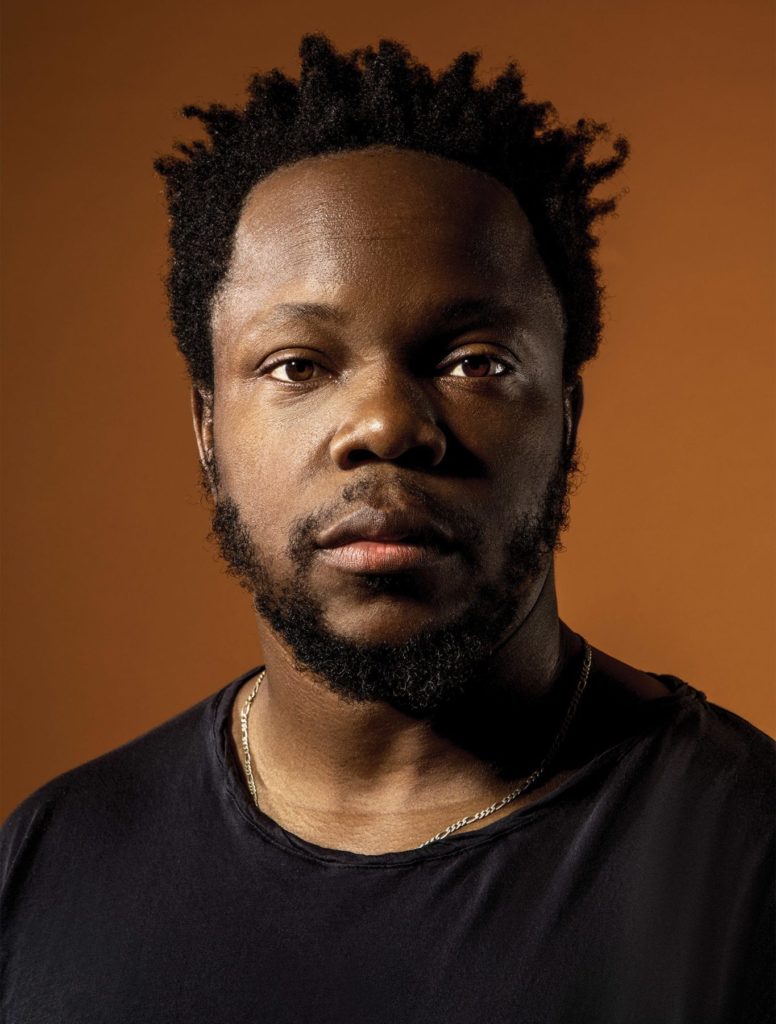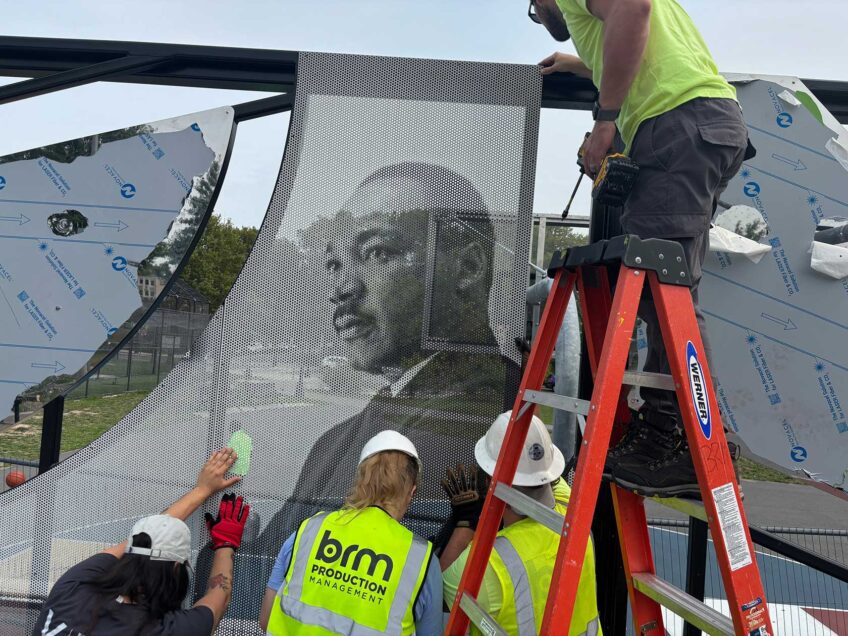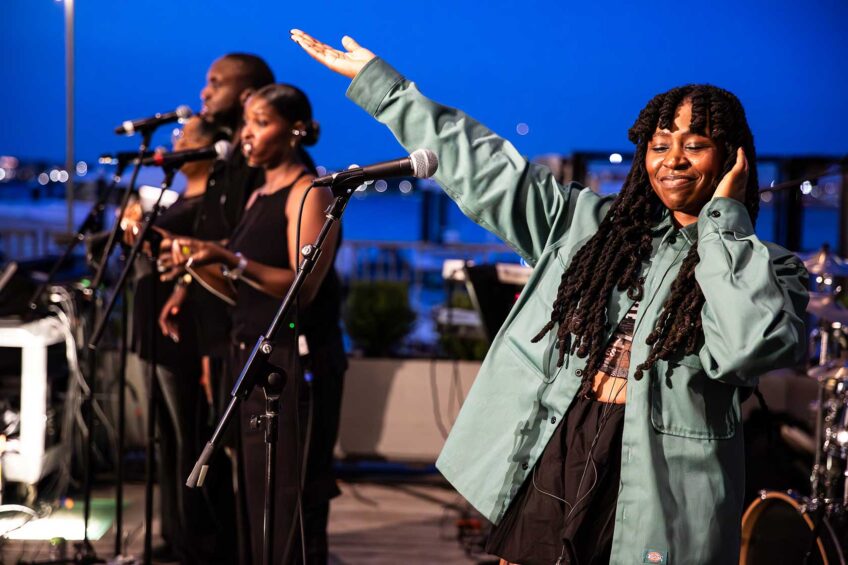
Jazz trumpeter Ambrose Akinmusire, just 38 years old, is on the cusp of global fame, thanks to his efforts and talent. His fifth album, “on the tender spot of every calloused moment,” was nominated for a 2021 Grammy Award as Best Jazz Instrumental Album and was named as one of the top 20 jazz albums of 2020 by Jazzwise magazine. Released as a CD on the Blue Note label in June 2020 and on vinyl in August, the recording is singular due to its varying depths. Consistent with Akinmusire’s oeuvre to date, the album takes in the harsh and mellow sounds of the culture and puts them through the highly personal, creative and musically skilled instrument he wields. As his website notes: “He’s on a perpetual quest for new paradigms, masterfully weaving inspiration from other genres, arts and life in general into compositions that are as poetic and graceful as they are bold and unflinching.”
The Banner caught up with Akinmusire from his home in Oakland, California.
Banner: For those unfamiliar with your new album, can you say a few words about its development and theme?
Ambrose Akinmusire: It features my working band. We’ve been a unit about 10 years. Justin Brown, the drummer, and I have played together over 20 years. Sam Harris, the pianist, about 15 or 16 years. This album, in particular, has my life as its subject matter, what, for example, it means to be African American in the U.S. I call this a blues album, mainly because my existence is that. You could say that all of the music of African Americans is blues. Solemn, sober and most importantly, resilient. It is about the resilience.
The title, “on the tender spot of every calloused moment,” is poetic. Other titles of your albums are equally lyrical: “A rift in decorum” and “the imagined savior is far easier to paint.” Did you ever want to be a writer?
No! I must say, my partner is a great writer. So we have a lot of amazing books in the house. And I really do like having titles for my albums that mean more than two or three things. Hundreds of titles that boil down into one, and that one has a lot in it!
You noted on your website, “I’ve learned to accept the consequences of believing in invention and creativity. But my horse blinders have gotten a lot longer and thicker over the years.” Who among your peers helped strengthen your resolve to be original?
Music from peers and mentors like Roscoe Mitchell, Archie Shepp and Joni Mitchell. A lot of Joni Mitchell. Musicians who go forward, no matter what, and create their own traditions. Roscoe Mitchell and Joni Mitchell were both so prolific as part of their existence, working and creating. It’s what it means to be human. I like to tell people that Joni Mitchell is first, in the sense that she always does the main duty of an artist: Who you were yesterday is not who you are today.
Any advice for musicians in their teens and 20s, especially about creativity?
The thing that helped me the most is this: If you take care of the music, it will take care of you. Get deeper and deeper into the music.
I read that your father is Nigerian. Does that have any direct bearing on your artistic sensibility?
Oh, that’s a whole other conversation! I mean, I really am African. I can recognize other cultures, to understand what it means to be an outsider. At the same time, my mother is from a small town in Mississippi, so she has had influence on my sensibilities, too. I feel mixed. My father introduced me to the music of Fela Kuti and King Sunny Ade; my mother introduced me to the music of Bobby Bland. Two deep cultures with traditions.
Any Boston ties?
When I first went to New York as a student at the Manhattan School of Music, as a 19-year-old, I had heard about Berklee and the New England Conservatory, so I’d take the Megabus from Chinatown for $15 to Boston. There were great players! We’d jam at Wally’s, and I’d hang around Berklee.
What are you planning for 2021?
The word I have written on the chalkboard in my home is “strengthen.” It’s all I’m focusing on. Resilience, growth, the need to reassemble a normal life. I’m running, doing yoga, writing a lot of stuff. I’m up between 5 and 6 in the morning and in my practice room.






